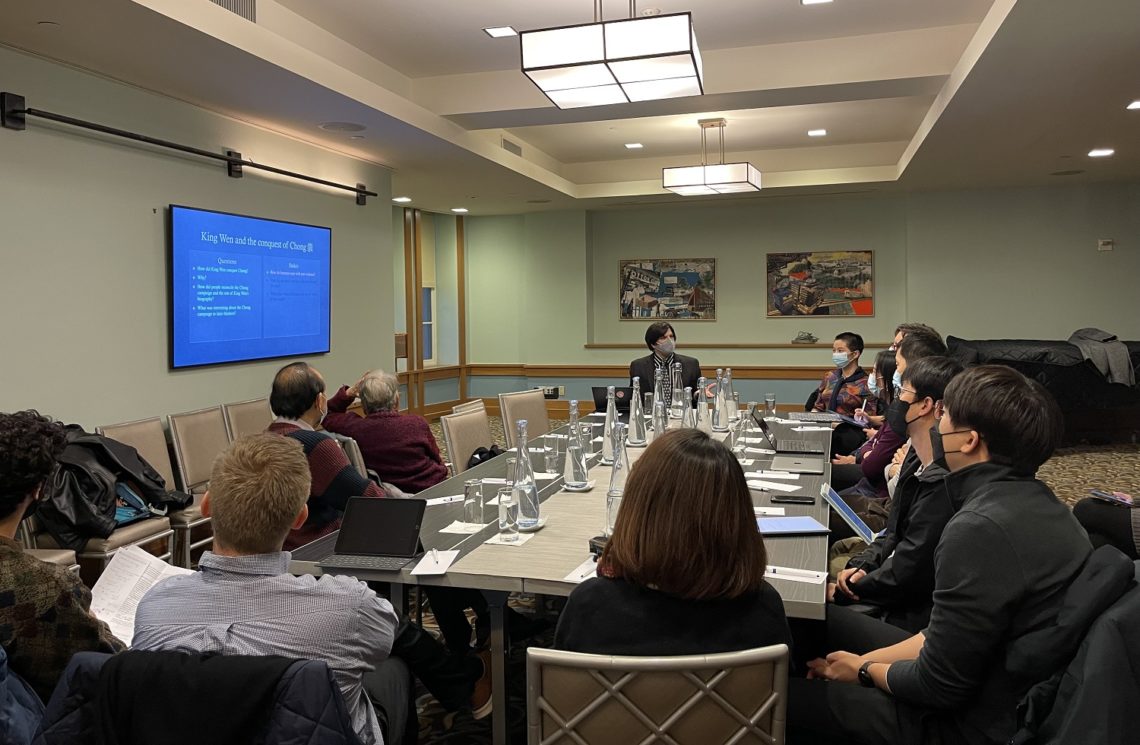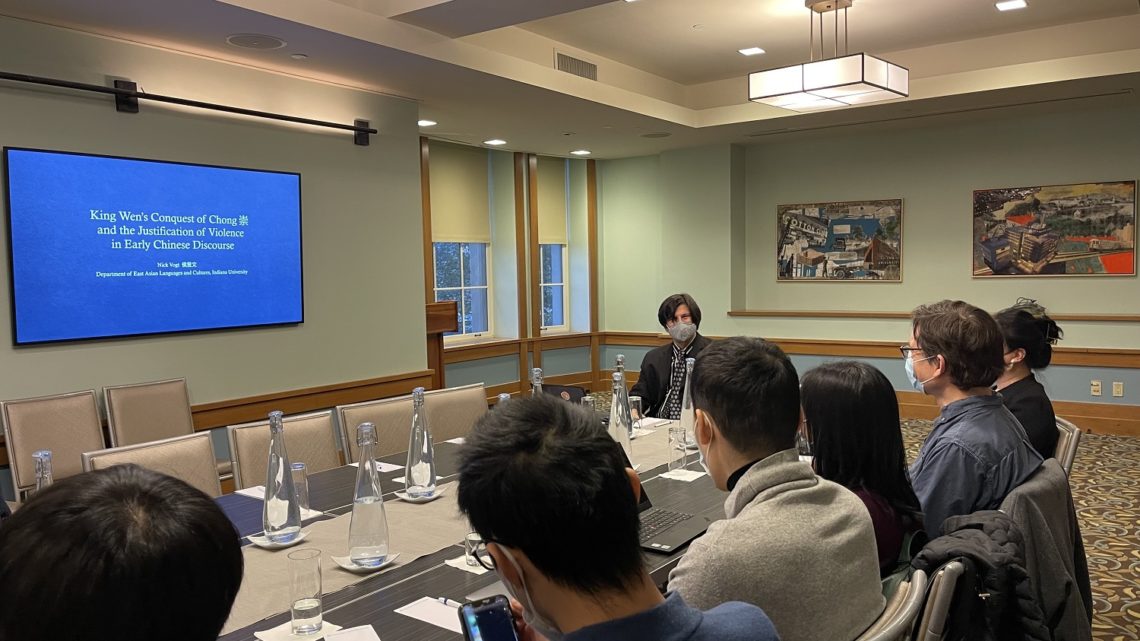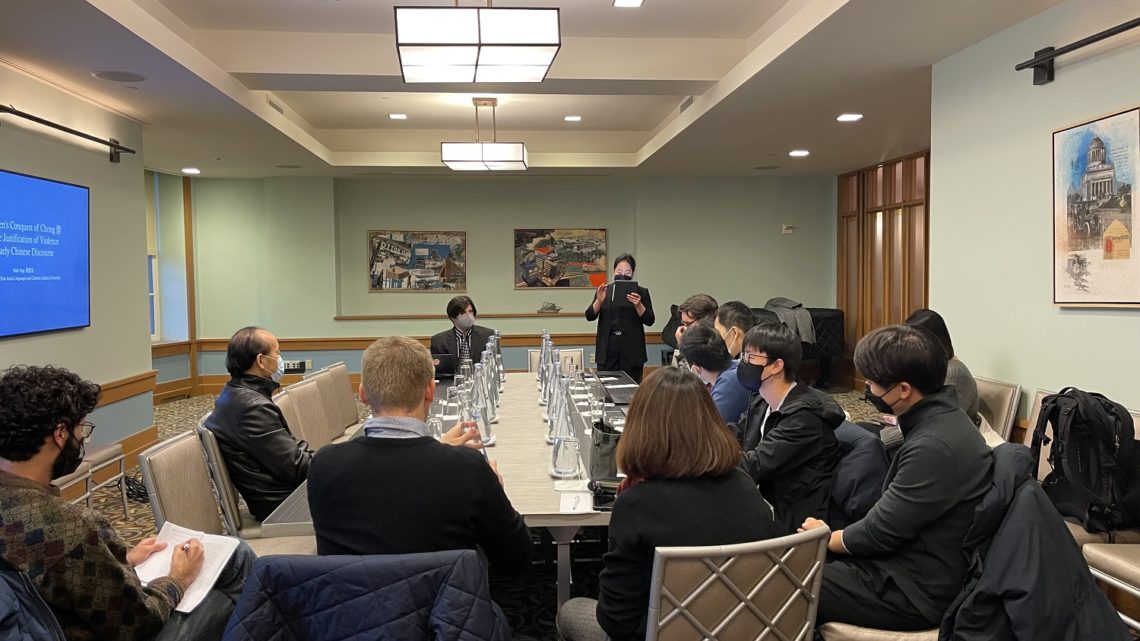November 18, 2022
Early China Seminar Lecture Series
Title: “King Wen’s Just War: The Conquest of Chong in Early Chinese Discourse”
Speaker: Nicholas Vogt, Indiana University
Time: November 18, 2022 (4:30-6:30 PM EST)
Venue: Faculty House
*Please check the announcement board in the first floor lobby for room information.
**Please see Seminar Safety Guidelines for attendance information.
King Wen of Zhou, putative first king of the Zhou dynasty, is perhaps best known as a uniter of people and resolver of conflicts – especially in his role as exemplar of the wen half of the wen/wu dyad in classical Chinese philosophy. However, early sources generally agree that King Wen, in the several years before his death, launched a series of attacks on locales between the Zhou homeland in the west and the hegemonic settlement of Shang. With the benefit of hindsight, we may now understand that King Wen was securing the strategic situation of Zhou and laying the groundwork for the eventual conquest of Shang by his heir Fa, the future King Wu. From this series of campaigns emerged an image of King Wen as mighty conqueror that figured in the early Zhou state cult.
The practical strategic value of an attack on Chong, however, was of little relevance to certain later historians with a greater interest in King Wen’s moral and personal development. A variety of justifications for the attack on Chong arose in later texts, powered by particular takes on the relationship between King Zhou of Shang, his ministers (including King Wen), the populace at large, and the supernatural forces of the cosmos. While these explanations betray the diversity of early Chinese approaches to the purpose and causal system of historiography, their common points also hint at a set of shared background assumptions about the nature of just war. In this presentation, we will consider how depictions of King Wen’s attack on the locale called Chong 崇 helped set the bounds of a discursive space of moral violence in early Chinese rhetoric, before delving briefly into their later deployment as justification for violence in Han dynasty discourse.



